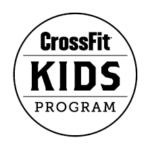Hit & Run Programs
Unlocking the Science of Cooking
Unlocking the Science of Cooking
Ah, the kitchen: a place where art and science converge in a swirl of flavors, textures, and aromas. For many of us, cooking is a journey of discovery, a chance to experiment with new techniques, ingredients, and equipment. But what if you could unlock the full potential of your kitchen equipment, harnessing the power of science to become a master chef?
The Physics of Heat Transfer
It all begins with understanding the physics of heat transfer. You see, heat is not just a matter of turning a dial or pressing a button; it's a complex dance of molecules, a waltz of warmth and energy that can make or break a dish. That's why choosing the right cookware is crucial. A good pan, for example, can distribute heat evenly, allowing for a perfect sear on your steak or a delicate simmer for your sauce.
As "The right cookware can make all the difference in the world. It's not just about the material, it's about the construction, the thickness, the way it's designed to distribute heat." says Chef Thomas Keller, a renowned American chef and restaurateur. This attention to detail is what sets professional chefs apart from amateur cooks.

The Chemistry of Flavor Pairing
But heat is just the beginning. Flavor pairing, that subtle art of combining ingredients to create a harmonious whole, is also rooted in science. It's all about chemistry, you see – the way molecules interact and bond, releasing a symphony of flavors and aromas that tantalize our taste buds. And the right kitchen equipment can enhance these flavors, coaxing out the hidden notes and nuances of your ingredients.
Take, for instance, the humble onion. When you chop an onion, you release enzymes that break down into sulfur compounds, giving the onion its characteristic flavor and aroma. But if you cook the onion too long, these compounds can break down further, resulting in a bitter taste. That's why it's essential to cook onions briefly, using a technique called "blooming," to bring out their natural sweetness.
The Art of Knife Sharpening
A sharp blade is not just a matter of convenience; it's a key to unlocking the full flavor potential of your ingredients. A dull knife, on the other hand, can crush and tear, releasing enzymes that break down the delicate balance of flavors. That's why knife sharpening and maintenance are essential skills for any serious cook.
Here are some tips for sharpening your knife:
- Use a whetstone or sharpening steel to hone your blade
- Hold the knife at a 20-degree angle, with the bevel facing you
- Draw the knife across the stone or steel in a smooth, even motion
- Repeat the process several times, until the knife is sharp and even
The Science of Sous Vide Cooking
Sous vide cooking, a technique that involves sealing ingredients in airtight bags and cooking them in a water bath, may seem like magic, but it's actually rooted in the science of thermodynamics. By precisely controlling the temperature and cooking time, you can achieve a level of doneness that's impossible with traditional cooking methods.
As "Sous vide cooking is not just about cooking food evenly; it's about cooking food precisely. You can achieve a level of doneness that's impossible with traditional cooking methods." says Chef Grant Achatz, a pioneer of molecular gastronomy. This precision is what makes sous vide cooking so appealing to professional chefs.
The Benefits of Induction Cooking
Induction cooking, another technique that's gaining popularity, also relies on science. By using electromagnetic fields to heat up cookware directly, induction cooktops can achieve faster, more efficient cooking times, all while reducing energy consumption.
Induction cooking is not just about speed and efficiency; it's also about safety. Because the cooktop itself doesn't heat up, there's less risk of burns or fires. And because the cookware is heated directly, there's less energy wasted on heating up the surrounding air.
Mastering the Art of Kitchen Equipment
As you can see, the science of cooking is a vast and fascinating topic, full of hidden wonders and unexpected surprises. By understanding the physics, chemistry, and biology that underlie cooking, you can unlock the full potential of your kitchen equipment, becoming a master chef in the process.
So why not start your culinary journey today? Explore the world of kitchen equipment, experiment with new techniques and ingredients, and discover the science that makes cooking so magical. With a little practice and patience, you'll be whipping up culinary masterpieces in no time!
The Thrill of the Unknown
Just as a perfectly cooked dish can evoke a sense of excitement and satisfaction, the thrill of the unknown can be a powerful draw in other areas of life. Take, for example, the rush of adrenaline that comes with playing games of chance. The uncertainty of the outcome, the possibility of a big win, and the thrill of the unknown can all combine to create a truly exhilarating experience. And just as a skilled chef must balance flavors and techniques to create a masterpiece, a savvy player must balance risk and reward to come out on top. For those looking to add a little excitement to their lives, Gold Gobblers slot online (Atomic Slot Lab) offers a chance to experience the thrill of the unknown from the comfort of their own homes. With its engaging gameplay and unpredictable outcomes, it's the perfect way to spice up a dull evening and add a little flavor to your life.
Conclusion
Unlocking the science of cooking is not just about mastering new techniques; it's about understanding the underlying principles that make cooking possible. By exploring the physics, chemistry, and biology of cooking, you can unlock the full potential of your kitchen equipment, becoming a master chef in the process. So why not start your culinary journey today? The world of cooking is waiting for you!

